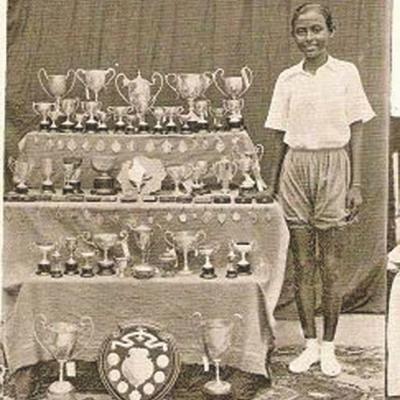Ila Mitra on:
[Wikipedia]
[Google]
[Amazon]
Ila Mitra (; 18 October 1925 – 13 October 2002) was an Indian
 Mitra's ancestors were from Bagutia village in the present-day
Mitra's ancestors were from Bagutia village in the present-day
communist
Communism () is a sociopolitical, philosophical, and economic ideology within the socialist movement, whose goal is the creation of a communist society, a socioeconomic order centered on common ownership of the means of production, di ...
and peasants movement organizer of the Indian subcontinent
The Indian subcontinent is a physiographic region of Asia below the Himalayas which projects into the Indian Ocean between the Bay of Bengal to the east and the Arabian Sea to the west. It is now divided between Bangladesh, India, and Pakista ...
, especially in East Bengal
East Bengal (; ''Purbô Bangla/Purbôbongo'') was the eastern province of the Dominion of Pakistan, which covered the territory of modern-day Bangladesh. It consisted of the eastern portion of the Bengal region, and existed from 1947 until 195 ...
(now Bangladesh).
Early life and education
 Mitra's ancestors were from Bagutia village in the present-day
Mitra's ancestors were from Bagutia village in the present-day Jhenaidah District
Jhenaidah District () is a district in southwestern Bangladesh. Part of the Khulna Division, the district has an area of . It is bordered by Kushtia District to the north, Jessore District and West Bengal to the south, Rajbari District and Magu ...
. She was born on 18 October 1925 in Kolkata
Kolkata, also known as Calcutta ( its official name until 2001), is the capital and largest city of the Indian state of West Bengal. It lies on the eastern bank of the Hooghly River, west of the border with Bangladesh. It is the primary ...
. She completed her IA and BA examinations from Bethune College
Bethune College is a women's college located on Bidhan Sarani in Kolkata, India, and affiliated to the University of Calcutta. It is the oldest women's college in India. It was established as a girls' school in 1849, and as a college in 1879.
...
in Calcutta in 1942 and 1944 respectively.
Ila Mitra First 2 Student
#Late. Mst.Rahima Begam #Mst.Hira BegamLeading role in peasant uprising
Mitra was the leader of peasants and indigenousSanthal
Santhal or Santal may refer to :
*Santhal people (part of the Tea Tribes), in Jharkhand, West Bengal, Bihar, Odisha, Assam in India, also minorities in neighboring Bangladesh and Nepal
** their Santhal rebellion in present-day Jharkhand, India
** ...
s in greater Rajshahi
Rajshahi (, ) is a metropolis, metropolitan city and a major Urban area, urban, administrative, commercial and educational centre of Bangladesh. It is also the administrative seat of the eponymous Rajshahi Division, division and Rajshahi Distr ...
region, currently in the district of Chapai Nawabganj, and was often referred to by them as ''RaniMa'' (Queen mother). She organized a peasant-santhal uprising in Nachole Upazila, Chapai Nawabganj on 5 January 1950, but the uprising was thwarted by the police and Ansar Bahini. Mitra was arrested by the police while trying to escape. She was detained at the Nachole police station for four days, and during the detention, she was repeatedly gang-raped and tortured by the policemen. Then she was sent to the Rajshahi Central jail on 21 January 1950, where she was reportedly tortured for not accepting her involvement in the rebellion. After a trial for treason, Mitra was sentenced to life imprisonment.
Later life
Partly due to the torture, Mitra fell very sick in jail. In 1954, theUnited front
A united front is an alliance of groups against their common enemies, figuratively evoking unification of previously separate geographic fronts or unification of previously separate armies into a front. The name often refers to a political and/ ...
government of Pakistan paroled her and sent her to Kolkata for treatment. As she was a Hindu and a Communist activist, to avoid persecution, she did not return to Pakistan and stayed the rest of her life in India. She also participated in mobilizing public opinion and support during the Bangladesh Liberation War
The Bangladesh Liberation War (, ), also known as the Bangladesh War of Independence, was an War, armed conflict sparked by the rise of the Bengali nationalism, Bengali nationalist and self-determination movement in East Pakistan, which res ...
of 1971.
She was elected to the West Bengal Legislative Assembly
The West Bengal Legislative Assembly (ISO 15919, ISO: ''Paścimabaṅga Vidhānasabhā'') is the unicameral legislature of the Indian state of West Bengal, located in eastern India. It consists of 294 members directly elected from single-seat ...
for Maniktala
Maniktala is a residential area of North Kolkata, in Kolkata district, West Bengal, India.
Etymology
The tomb of Manik Pir is located in lane near Maniktala crossing, therefore some locals suggest the neighbourhood is named after him.
Other ...
constituency during 1962–1971 and 1972–1977.
She played part in stopping riot against Muslims in West Bengal in 1965.
Mitra died in Kolkata on 13 October 2002.
Awards
*''Soviet Land Neheru'' for literary translation work *''Tamra Patra'' from the government of India.References
Further reading
* * * {{DEFAULTSORT:Mitra, Ila 1925 births 2002 deaths University of Calcutta alumni Indian women activists Politicians from Kolkata Communist Party of India politicians from West Bengal Women members of the West Bengal Legislative Assembly 20th-century Indian women politicians West Bengal MLAs 1972–1977 Indian revolutionaries Indian anti-war activists Adivasi activists Indian social reformers Adivasi women People from Chapai Nawabganj district Politicians from Rajshahi Division Female politicians of the Communist Party of India Indian activists Indian prisoners sentenced to life imprisonment Activists from West Bengal People convicted of treason Prisoners sentenced to life imprisonment by India West Bengal MLAs 1962–1967 West Bengal MLAs 1967–1969 West Bengal MLAs 1969–1971